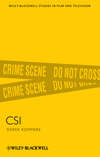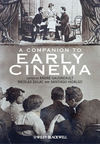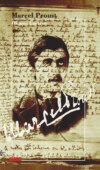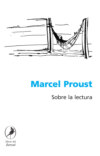Kitabı oku: «In Search Of Lost Time. Volumes 1 to 7», sayfa 56
But, so far as Odette was concerned, Swann was quite blind, not merely to these deficiencies in her education but to the general mediocrity of her intelligence. More than that; whenever Odette repeated a silly story Swann would sit listening to his wife with a complacency, a merriment, almost an admiration into which some survival of his desire for her must have entered; while in the same conversation, anything subtle, anything deep even that he himself might say would be listened to by Odette with an habitual lack of interest, rather curtly, with impatience, and would at times be sharply contradicted. And we must conclude that this enslavement of refinement by vulgarity is the rule in many households, when we think, conversely, of all the superior women who yield to the blandishments of a boor, merciless in his censure of their most delicate utterances, while they go into ecstasies, with the infinite indulgence of love, over the feeblest of his witticisms. To return to the reasons which prevented Odette, at this period, from making her way into the Faubourg Saint-Germain, it must be observed that the latest turn of the social kaleidoscope had been actuated by a series of scandals. Women to whose houses one had been going with entire confidence had been discovered to be common prostitutes, if not British spies. One would, therefore, for some time to come expect people (so, at least, one supposed) to be, before anything else, in a sound position, regular, settled, accountable. Odette represented simply everything with which one had just severed relations, and was incidentally to renew them at once (for men, their natures not altering from day to day, seek in every new order a continuance of the old) but to renew them by seeking it under another form which would allow one to be innocently taken in, and to believe that it was no longer the same society as before the disaster. However, the scapegoats of that society and Odette were too closely alike. People who move in society are very short-sighted; at the moment in which they cease to have any relations with the Israelite ladies whom they have known, while they are asking themselves how they are to fill the gap thus made in their lives, they perceive, thrust into it as by the windfall of a night of storm, a new lady, an Israelite also; but by virtue of her novelty she is not associated in their minds with her predecessors, with what they are convinced that they must abjure. She does not ask that they shall respect her God. They take her up. There was no question of anti-semitism at the time when I used first to visit Odette. But she was like enough to it to remind people of what they wished, for a while, to avoid.
As for Swann himself, he was still a frequent visitor of several of his former acquaintance, who, of course, were all of the very highest rank. And yet when he spoke to us of the people whom he had just been to see I noticed that, among those whom he had known in the old days, the choice that he made was dictated by the same kind of taste, partly artistic, partly historic, that inspired him as a collector. And remarking that it was often some great lady or other of waning reputation, who interested him because she had been the mistress of Liszt or because one of Balzac’s novels was dedicated to her grandmother (as he would purchase a drawing if Chateaubriand had written about it) I conceived a suspicion that we had, at Combray, replaced one error, that of regarding Swann as a mere stockbroker, who did not go into society, by another, when we supposed him to be one of the smartest men in Paris. To be a friend of the Comte de Paris meant nothing at all. Is not the world full of such ‘friends of Princes,’ who would not be received in any house that was at all ‘exclusive’? Princes know themselves to be princes, and are not snobs; besides, they believe themselves to be so far above everything that is not of their blood royal that great nobles and ‘business men’ appear, in the depths beneath them, to be practically on a level.
But Swann went farther than this; not content with seeking in society, such as it was, when he fastened upon the names which, inscribed upon its roll by the past, were still to be read there, a simple artistic and literary pleasure, he indulged in the slightly vulgar diversion of arranging as it were social nosegays by grouping heterogeneous elements, bringing together people taken at hazard, here, there and everywhere. These experiments in the lighter side (or what was to Swann the lighter side) of sociology did not stimulate an identical reaction, with any regularity, that is to say, in each of his wife’s friends. “I’m thinking of asking the Cottards to meet the Duchesse de Vendôme,” he would laughingly say to Mme. Bontemps, in the appetised tone of an epicure who has thought of, and intends to try the substitution, in a sauce, of cayenne pepper for cloves. But this plan, which was, in fact, to appear quite humorous, in an archaic sense of the word, to the Cottards, had also the power of infuriating Mme. Bontemps. She herself had recently been presented by the Swanns to the Duchesse de Vendôme, and had found this as agreeable as it seemed to her natural. The thought of winning renown from it at the Cottards’, when she related to them what had happened, had been by no means the least savoury ingredient of her pleasure. But like those persons recently decorated who, their investiture once accomplished, would like to see the fountain of honour turned off at the main, Mme. Bontemps would have preferred that, after herself, no one else in her own circle of friends should be made known to the Princess. She denounced (to herself, of course) the licentious taste of Swann who, in order to gratify a wretched aesthetic whim, was obliging her to scatter to the winds, at one swoop, all the dust that she would have thrown in the eyes of the Cottards when she told them about the Duchesse de Vendôme. How was she even to dare to announce to her husband that the Professor and his wife were in their turn to partake of this pleasure, of which she had boasted to him as though it were unique. And yet, if the Cottards could only be made to know that they were being invited not seriously but for the amusement of their host! It is true that the Bontemps had been invited for the same reason, but Swann, having acquired from the aristocracy that eternal ‘Don Juan’ spirit which, in treating with two women of no importance, makes each of them believe that it is she alone who is seriously loved, had spoken to Mme. Bontemps of the Duchesse de Vendôme as of a person whom it was clearly laid down that she must meet at dinner. “Yes, we’re determined to have the Princess here with the Cottards,” said Mme. Swann a few weeks later; “My husband thinks that we might get something quite amusing out of that conjunction.” For if she had retained from the ‘little nucleus’ certain habits dear to Mme. Verdurin, such as that of shouting things aloud so as to be heard by all the faithful, she made use, at the same time, of certain expressions, such as ‘conjunction,’ which were dear to the Guermantes circle, of which she thus felt unconsciously and at a distance, as the sea is swayed by the moon, the attraction, though without being drawn perceptibly closer to it. “Yes, the Cottards and the Duchesse de Vendôme. Don’t you think that might be rather fun?” asked Swann. “I think they’ll be exceedingly ill-assorted, and it can only lead to a lot of bother; people oughtn’t to play with fire, is what I say!” snapped Mme. Bontemps, furious. She and her husband were, all the same, invited, as was the Prince d’Agrigente, to this dinner, which Mme. Bontemps and Cottard had each two alternative ways of describing, according to whom they were telling about it. To one set Mme. Bontemps for her part, and Cottard for his would say casually, when asked who else had been of the party: “Only the Prince d’Agrigente; it was all quite intimate.” But there were others who might, alas, be better informed (once, indeed, some one had challenged Cottard with: “But weren’t the Bontemps there too?” “Oh, I forgot them,” Cottard had blushingly admitted to the tactless questioner whom he ever afterwards classified among slanderers and speakers of evil). For these the Bontemps and Cottards had each adopted, without any mutual arrangement, a version the framework of which was identical for both parties, their own names alone changing places. “Let me see;” Cottard would say, “there were our host and hostess, the Due and Duchesse de Vendôme—” (with a satisfied smile) “Professor and Mme. Cottard, and, upon my soul, heaven only knows how they got there, for they were about as much in keeping as hairs in the soup, M. and Mme. Bontemps!” Mme. Bontemps would recite an exactly similar ‘piece,’ only it was M. and Mme. Bontemps who were named with a satisfied emphasis between the Duchesse de Vendôme and the Prince d’Agrigente, while the ‘also ran,’ whom finally she used to accuse of having invited themselves, and who completely spoiled the party, were the Cottards.
When he had been paying calls Swann would often come home with little time to spare before dinner. At that point in the evening, six o’clock, when in the old days he had felt so wretched, he no longer asked himself what Odette might be about, and was hardly at all concerned to hear that she had people still with her, or had gone out. He recalled at times that he had once, years ago, tried to read through its envelope a letter addressed by Odette to Forcheville. But this memory was not pleasing to him, and rather than plumb the depth of shame that he felt in it he preferred to indulge in a little grimace, twisting up the corners of his mouth and adding, if need be, a shake of the head which signified “What does it all matter?” In truth, he considered now that the hypothesis by which he had often been brought to a standstill in days gone by, according to which it was his jealous imagination alone that blackened what was in reality the innocent life of Odette—that this hypothesis (which after all was beneficent, since, so long as his amorous malady had lasted, it had diminished his sufferings by making them seem imaginary) was not the truth, that it was his jealousy that had seen things in the right light, and that if Odette had loved him better than he supposed, she had deceived him more as well. Formerly, while his sufferings were still keen, he had vowed that, as soon as he should have ceased to love Odette, and so to be afraid either of vexing her or of making her believe that he loved her more than he did, he would afford himself the satisfaction of elucidating with her, simply from his love of truth and as a historical point, whether or not she had had Forcheville in her room that day when he had rung her bell and rapped on her window without being let in, and she had written to Forcheville that it was an uncle of hers who had called. But this so interesting problem, of which he was waiting to attempt the solution only until his jealousy should have subsided, had precisely lost all interest in Swann’s eyes when he had ceased to be jealous. Not immediately, however. He felt no other jealousy now with regard to Odette than what the memory of that day, that afternoon spent in knocking vainly at the little house in the Rue La Pérouse, had continued to excite in him; as though his jealousy, not dissimilar in that respect from those maladies which appear to have their seat, their centre of contagion less in certain persons than in certain places, in certain houses, had had for its object not so much Odette herself as that day, that hour in the irrevocable past when Swann had beaten at every entrance to her house in turn. You would have said that that day, that hour alone had caught and preserved a few last fragments of the amorous personality which had once been Swann’s, and that there alone could he now recapture them. For a long time now it had made no matter to him that Odette had been false to him, and was false still. And yet he had continued for some years to seek out old servants of Odette, so strongly in him persisted the painful curiosity to know whether on that day, so long ago, at six o’clock, Odette had been in bed with Forcheville. Then that curiosity itself had disappeared, without, however, his abandoning his investigations. He continued the attempt to discover what no longer interested him, because his old ego though it had shrivelled to the extreme of decrepitude still acted mechanically, following the course of preoccupations so utterly abandoned that Swann could not now succeed even in forming an idea of that anguish—so compelling once that he had been unable to foresee his ever being delivered from it, that only the death of her whom he loved (death which, as will be shewn later on in this story, by a cruel example, in no way diminishes the sufferings caused by jealousy) seemed to him capable of making smooth the road, then insurmountably barred to him, of his life.
But to bring to light, some day, those passages in the life of Odette to which he owed his sufferings had not been Swann’s only ambition; he had in reserve that also of wreaking vengeance for his sufferings when, being no longer in love with Odette, he should no longer be afraid of her; and the opportunity of gratifying this second ambition had just occurred, for Swann was in love with another woman, a woman who gave him—grounds for jealousy, no, but who did all the same make him jealous, because he was not capable, now, of altering his way of making love, and it was the way he had used with Odette that must serve him now for another. To make Swann’s jealousy revive it was not essential that this woman should be unfaithful, it sufficed that for any reason she was separated from him, at a party for instance, where she was presumably enjoying herself. That was enough to reawaken in him the old anguish, that lamentable and inconsistent excrescence of his love, which held Swann ever at a distance from what she really was, like a yearning to attain the impossible (what this young woman really felt for him, the hidden longing that absorbed her days, the secret places of her heart), for between Swann and her whom he loved this anguish piled up an unyielding mass of already existing suspicions, having their cause in Odette, or in some other perhaps who had preceded Odette, allowing this now ageing lover to know his mistress of the moment only in the traditional and collective phantasm of the ‘woman who made him jealous,’ in which he had arbitrarily incarnated his new love. Often, however, Swann would charge his jealousy with the offence of making him believe in imaginary infidelities; but then he would remember that he had given Odette the benefit of the same argument and had in that been wrong. And so everything that the young woman whom he loved did in those hours when he was not with her appeared spoiled of its innocence in his eyes. But whereas at that other time he had made a vow that if ever he ceased to love her whom he did not then imagine to be his future wife, he would implacably exhibit to her an indifference that would at length be sincere, so as to avenge his pride that had so long been trampled upon by her—of those reprisals which he might now enforce without risk to himself (for what harm could it do him to be taken at his word and deprived of those intimate moments with Odette that had been so necessary to him once), of those reprisals he took no more thought; with his love had vanished the desire to shew that he was in love no longer. And he who, when he was suffering at the hands of Odette, would have looked forward so keenly to letting her see one day that he had fallen to a rival, now that he was in a position to do so took infinite precautions lest his wife should suspect the existence of this new love.
* * *
It was not only in those tea-parties, on account of which I had formerly had the sorrow of seeing Gilberte leave me and go home earlier than usual, that I was henceforth to take part, but the engagements that she had with her mother, to go for a walk or to some afternoon party, which by preventing her from coming to the Champs-Elysées had deprived me of her, on those days when I loitered alone upon the lawn or stood before the wooden horses—to these outings M. and Mme. Swann henceforth admitted me, I had a seat in their landau, and indeed it was me that they asked if I would rather go to the theatre, to a dancing lesson at the house of one of Gilberte’s friends, to some social gathering given by friends of her parents (what Odette called ‘a little meeting’) or to visit the tombs at Saint-Denis.
On days when I was going anywhere with the Swanns I would arrive at the house in time for déjeuner, which Mme. Swann called ‘le lunch’; as one was not expected before half-past twelve, while my parents in those days had their meal at a quarter past eleven, it was not until they had risen from the table that I made my way towards that sumptuous quarter, deserted enough at any hour, but more particularly just then, when everyone had gone indoors. Even on winter days of frost, if the weather held, tightening every few minutes the knot of a gorgeous necktie from Charvet’s and looking to see that my varnished boots were not getting dirty, I would roam to and fro among the avenues, waiting until twenty-seven minutes past the hour. I could see from afar in the Swanns’ little garden-plot the sunlight glittering like hoar frost from the bare-boughed trees. It is true that the garden boasted but a pair of them. The unusual hour presented the scene in a new light. Into these pleasures of nature (intensified by the suppression of habit and indeed by my physical hunger) the thrilling prospect of sitting down to luncheon with Mme. Swann was infused; it did not diminish them, but taking command of them trained them to its service; so that if, at this hour when ordinarily I did not perceive them, I seemed now to be discovering the fine weather, the cold, the wintry sunlight, it was all as a sort of preface to the creamed eggs, as a patina, a cool and coloured glaze applied to the decoration of that mystic chapel which was the habitation of Mme. Swann, and in the heart of which there were, by contrast, so much warmth, so many scents and flowers.
At half-past twelve I would finally make up my mind to enter that house which, like an immense Christmas stocking, seemed ready to bestow upon me supernatural delights. (The French name ‘Noël’ was, by the way, unknown to Mme. Swann and Gilberte, who had substituted for it the English ‘Christmas,’ and would speak of nothing but ‘Christmas pudding,’ what people had given them as ‘Christmas presents’ and of going away—the thought of which maddened me with grief—‘for Christmas.’ At home even, I should have thought it degrading to use the word ‘Noël,’ and always said ‘Christmas,’ which my father considered extremely silly.)
I encountered no one at first but a footman who after leading me through several large drawing-rooms shewed me into one that was quite small, empty, its windows beginning to dream already in the blue light of afternoon; I was left alone there in the company of orchids, roses and violets, which, like people who are kept waiting in a room beside you but do not know you, preserved a silence which their individuality as living things made all the more impressive, and received coldly the warmth of a glowing fire of coals, preciously displayed behind a screen of crystal, in a basin of white marble over which it spilled, now and again, its perilous rubies.
I had sat down, but I rose hurriedly on hearing the door opened; it was only another footman, and then a third, and the minute result that their vainly alarming entrances and exits achieved was to put a little more coal on the fire or water in the vases. They departed, I found myself alone, once that door was shut which Mme. Swann was surely soon going to open. Of a truth, I should have been less ill at ease in a magician’s cave than in this little waiting-room where the fire appeared to me to be performing alchemical transmutations as in Klingsor’s laboratory. Footsteps sounded afresh, I did not rise, it was sure to be just another footman; it was M. Swann. “What! All by yourself? What is one to do; that poor wife of mine has never been able to remember what time means! Ten minutes to one. She gets later every day. And you’ll see, she will come sailing in without the least hurry, and imagine she’s in heaps of time.” And as he was still subject to neuritis, and as he was becoming a trifle ridiculous, the fact of possessing so unpunctual a wife, who came in so late from the Bois, forgot everything at her dressmaker’s and was never in time for luncheon made Swann anxious for his digestion but flattered his self-esteem.
He shewed me his latest acquisitions and explained their interest to me, but my emotion, added to the unfamiliarity of being still without food at this hour, sweeping through my mind left it void, so that while able to speak I was incapable of hearing. Anyhow, so far as the works of art in Swann’s possession were concerned, it was enough for me that they were contained in his house, formed a part there of the delicious hour that preceded luncheon. The Gioconda herself might have appeared there without giving me any more pleasure than one of Mme. Swann’s indoor gowns, or her scent bottles.
I continued to wait, alone or with Swann, and often with Gilberte, come in to keep us company. The arrival of Mme. Swann, prepared for me by all those majestic apparitions, must (so it seemed to me) be something truly immense. I strained my ears to catch the slightest sound. But one never finds quite as high as one has been expecting a cathedral, a wave in a storm, a dancer’s leap in the air; after those liveried footmen, suggesting the chorus whose processional entry upon the stage leads up to and at the same time diminishes the final appearance of the queen, Mme. Swann, creeping furtively in, with a little otter-skin coat, her veil lowered to cover a nose pink-tipped by the cold, did not fulfil the promises lavished, while I had been waiting, upon my imagination.
But if she had stayed at home all morning, when she arrived in the drawing-room she would be clad in a wrapper of crêpe-de-Chine, brightly coloured, which seemed to me more exquisite than any of her dresses.
Sometimes the Swanns decided to remain in the house all afternoon, and then, as we had had luncheon so late, very soon I must watch setting, beyond the garden-wall, the sun of that day which had seemed to me bound to be different from other days; then in vain might the servants bring in lamps of every size and shape, burning each upon the consecrated altar of a console, a card-table, a corner-cupboard, a bracket, as though for the celebration of some strange and secret rite; nothing extraordinary transpired in the conversation, and I went home disappointed, as one often is in one’s childhood after the midnight mass.
But my disappointment was scarcely more than mental. I was radiant with happiness in this house where Gilberte, when she was still not with us, was about to appear and would bestow on me in a moment, and for hours to come, her speech, her smiling and attentive gaze, just as I had caught it, that first time, at Combray. At the most I was a trifle jealous when I saw her so often disappear into vast rooms above, reached by a private staircase. Obliged myself to remain in the drawing-room, like a man in love with an actress who is confined to his stall ‘in front’ and wonders anxiously what is going on behind the scenes, in the green-room, I put to Swann, with regard to this other part of the house questions artfully veiled, but in a tone from which I could not quite succeed in banishing the note of uneasiness. He explained to me that the place to which Gilberte had gone was the linen-room, offered himself to shew it to me, and promised me that whenever Gilberte Had occasion to go there again he would insist upon her taking me with her. By these last words and the relief which they brought me Swann at once annihilated for me one of those terrifying interior perspectives at the end of which a woman with whom we are in love appears so remote. At that moment I felt for him an affection which I believed to be deeper than my affection for Gilberte. For he, being the master over his daughter, was giving her to me, whereas she, she withheld herself now and then, I had not the same direct control over her as I had indirectly through Swann. Besides, it was she whom I loved and could not, therefore look upon without that disturbance, without that desire for something more which destroys in us, in the presence of one whom we love, the sensation of loving.
As a rule, however, we did not stay indoors, we went out. Sometimes, before going to dress, Mme. Swann would sit down at the piano. Her lovely hands, escaping from the pink, or white, or, often, vividly coloured sleeves of her crêpe-de-Chine wrapper, drooped over the keys with that same melancholy which was in her eyes but was not in her heart. It was on one of those days that she happened to play me the part of Vinteuil’s sonata that contained the little phrase of which Swann had been so fond. But often one listens and hears nothing, if it is a piece of music at all complicated to which one is listening for the first time. And yet when, later on, this sonata had been played over to me two or three times I found that I knew it quite well. And so it is not wrong to speak of hearing a thing for the first time. If one had indeed, as one supposes, received no impression from the first hearing, the second, the third would be equally ‘first hearings’ and there would be no reason why one should understand it any better after the tenth. Probably what is wanting, the first time, is not comprehension but memory. For our memory, compared to the complexity of the impressions which it has to face while we are listening, is infinitesimal, as brief as the memory of a man who in his sleep thinks of a thousand things and at once forgets them, or as that of a man in his second childhood who cannot recall, a minute afterwards, what one has just been saying to him. Of these multiple impressions our memory is not capable of furnishing us with an immediate picture. But that picture gradually takes shape, and, with regard to works which we have heard more than once, we are like the schoolboy who has read several times over before going to sleep a lesson which he supposed himself not to know, and finds that he can repeat it by heart next morning. It was only that I had not, until then, heard a note of the sonata, whereas Swann and his wife could make out a distinct phrase that was as far beyond the range of my perception as a name which one endeavours to recall and in place of which one discovers only a void, a void from which, an hour later, when one is not thinking about them, will spring of their own accord, in one continuous flight, the syllables that one has solicited in vain. And not only does one not seize at once and retain an impression of works that are really great, but even in the content of any such work (as befell me in the case of Vinteuil’s sonata) it is the least valuable parts that one at first perceives. Thus it was that I was mistaken not only in thinking that this work held nothing further in store for me (so that for a long time I made no effort to hear it again) from the moment in which Mme. Swann had played over to me its most famous passage; I was in this respect as stupid as people are who expect to feel no astonishment when they stand in Venice before the front of Saint Mark’s, because photography has already acquainted them with the outline of its domes. Far more than that, even when I had heard the sonata played from beginning to end, it remained almost wholly invisible to me, like a monument of which its distance or a haze in the atmosphere allows us to catch but a faint and fragmentary glimpse. Hence the depression inseparable from one’s knowledge of such works, as of everything that acquires reality in time. When the least obvious beauties of Vinteuil’s sonata were revealed to me, already, borne by the force of habit beyond the reach of my sensibility, those that I had from the first distinguished and preferred in it were beginning to escape, to avoid me. Since I was able only in successive moments to enjoy all the pleasures that this sonata gave me, I never possessed it in its entirety: it was like life itself. But, less disappointing than life is, great works of art do not begin by giving us all their best. In Vinteuil’s sonata the beauties that one discovers at once are those also of which one most soon grows tired, and for the same reason, no doubt, namely that they are less different from what one already knows. But when those first apparitions have withdrawn, there is left for our enjoyment some passage which its composition, too new and strange to offer anything but confusion to our mind, had made indistinguishable and so preserved intact; and this, which we have been meeting every day and have not guessed it, which has thus been held in reserve for us, which by the sheer force of its beauty has become invisible and has remained unknown, this comes to us last of all. But this also must be the last that we shall relinquish. And we shall love it longer than the rest because we have taken longer to get to love it. The time, moreover, that a person requires—as I required in the matter of this sonata—to penetrate a work of any depth is merely an epitome, a symbol, one might say, of the years, the centuries even that must elapse before the public can begin to cherish a masterpiece that is really new. So that the man of genius, to shelter himself from the ignorant contempt of the world, may say to himself that, since one’s contemporaries are incapable of the necessary detachment, works written for posterity should be read by posterity alone, like certain pictures which one cannot appreciate when one stands too close to them. But, as it happens, any such cowardly precaution to avoid false judgments is doomed to failure; they are inevitable. The reason for which a work of genius is not easily admired from the first is that the man who has created it is extraordinary, that few other men resemble him. It was Beethoven’s Quartets themselves (the Twelfth, Thirteenth, Fourteenth and Fifteenth) that devoted half a century to forming, fashioning and enlarging a public for Beethoven’s Quartets, marking in this way, like every great work of art, an advance if not in artistic merit at least in intellectual society, largely composed to-day of what was not to be found when the work first appeared, that is to say of persons capable of enjoying it. What artists call posterity is the posterity of the work of art. It is essential that the work (leaving out of account, for brevity’s sake, the contingency that several men of genius may at the same time be working along parallel lines to create a more instructed public in the future, a public from which other men of genius shall reap the benefit) shall create its own posterity. For if the work were held in reserve, were revealed only to posterity, that audience, for that particular work, would be not posterity but a group of contemporaries who were merely living half-a-century later in time. And so it is essential that the artist (and this is what Vinteuil had done), if he wishes his work to be free to follow its own course, shall launch it, wherever he may find sufficient depth, confidently outward bound towards the future. And yet this interval of time, the true perspective in which to behold a work of art, if leaving it out of account is the mistake made by bad judges, taking it into account is at times a dangerous precaution of the good. No doubt one can easily imagine, by an illusion similar to that which makes everything on the horizon appear equidistant, that all the revolutions which have hitherto occurred in painting or in music did at least shew respect for certain rules, whereas that which immediately confronts us, be it impressionism, a striving after discord, an exclusive use of the Chinese scale, cubism, futurism or what you will, differs outrageously from all that have occurred before. Simply because those that have occurred before we are apt to regard as a whole, forgetting that a long process of assimilation has melted them into a continuous substance, varied of course but, taking it as a whole, homogeneous, in which Hugo blends with Molière. Let us try to imagine the shocking incoherence that we should find, if we did not take into account the future, and the changes that it must bring about, in a horoscope of our own riper years, drawn and presented to us in our youth. Only horoscopes are not always accurate, and the necessity, when judging a work of art, of including the temporal factor in the sum total of its beauty introduces, to our way of thinking, something as hazardous, and consequently as barren of interest, as every prophecy the non-fulfilment of which will not at all imply any inadequacy on the prophet’s part, for the power to summon possibilities into existence or to exclude them from it is not necessarily within the competence of genius; one may have had genius and yet not have believed in the future of railways or of flight, or, although a brilliant psychologist, in the infidelity of a mistress or of a friend whose treachery persons far less gifted would have foreseen.




















